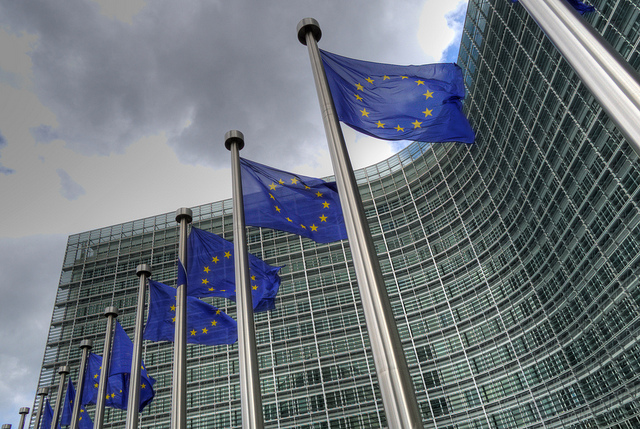The European Union’s (EU) renewable energy goals have long been criticized as unambitious, but even a pan-union goal to reach 20% of renewable penetration by 2020 looks increasingly beyond the U.K. as the country begins to lose focus, says the European Commission (EC) in a pre-release report on EU member states’ clean energy progress.
Embroiled in Brexit turmoil, the British government is currently wrestling with how best to extricate itself from the EU completely, so it should come as little surprise that an EU-mandated policy on renewable energy is not top of the to-do list.
That being said, there is widespread dismay throughout the British clean energy sectors at the apparent disregard for the EU Renewable Energy Directive, which targets the U.K. with reaching 30% renewable penetration in electricity by 2020, 12% heat, and 10% transport.
According to the most recent Energy and Climate Change Select Committee report, the U.K. is less than halfway towards meeting some of those goals, and there is unlikely to be any improvement in policy support while the very notion of Britain’s membership of the EU is so uncertain.
“This is a wake-up call to our government, which for the past two years has introduced policy changes that have slowed deployment of renewables in the heat, transport and power sectors,” said Nina Skorupska, chief executive of the U.K.’s Renewable Energy Association (REA). “Our progress towards these targets to date has helped create a multibillion pound industry that in 2014 to 2015 employed nearly 117,000 in the U.K.”
The REA urges that the government helps support further renewable electricity deployment in the U.K. to ease the burden on the heat and transport sectors. “This can be quickly and cheaply done by reallowing solar PV and onshore wind to compete in government auctions [Contracts for Difference],” argued Skorupska.
The full EC report will be released tomorrow (February 1), but Climate and Energy Commissioner Miguel Arias Canete has told Reuters that EU nations will have to redouble their efforts to meet renewable targets in the wake of the election of Donald Trump as U.S. president, and the near-certainty of Brexit.
“Despite the current geopolitical uncertainties… Europe will move ahead with the clean energy transition, and will look to China and many other players to push forward,” Canete said. In 2015, renewables accounted for 16.4% of the EU’s overall electricity consumption, putting the bloc as a whole on course to meet the 2020 target.
However, the worry is that an anti-renewables U.S. could serve to undermine European desire to meet targets, hence the urge to forge stronger ties with a China seemingly intent on fighting climate change and increasing its share of renewable energy.
The U.K. was not the only country singled out for criticism. Ireland and Luxembourg are both lagging EU targets, while France and the Netherlands are also in danger of falling short of the 2020 goal, the Commission said.
This content is protected by copyright and may not be reused. If you want to cooperate with us and would like to reuse some of our content, please contact: editors@pv-magazine.com.



By submitting this form you agree to pv magazine using your data for the purposes of publishing your comment.
Your personal data will only be disclosed or otherwise transmitted to third parties for the purposes of spam filtering or if this is necessary for technical maintenance of the website. Any other transfer to third parties will not take place unless this is justified on the basis of applicable data protection regulations or if pv magazine is legally obliged to do so.
You may revoke this consent at any time with effect for the future, in which case your personal data will be deleted immediately. Otherwise, your data will be deleted if pv magazine has processed your request or the purpose of data storage is fulfilled.
Further information on data privacy can be found in our Data Protection Policy.